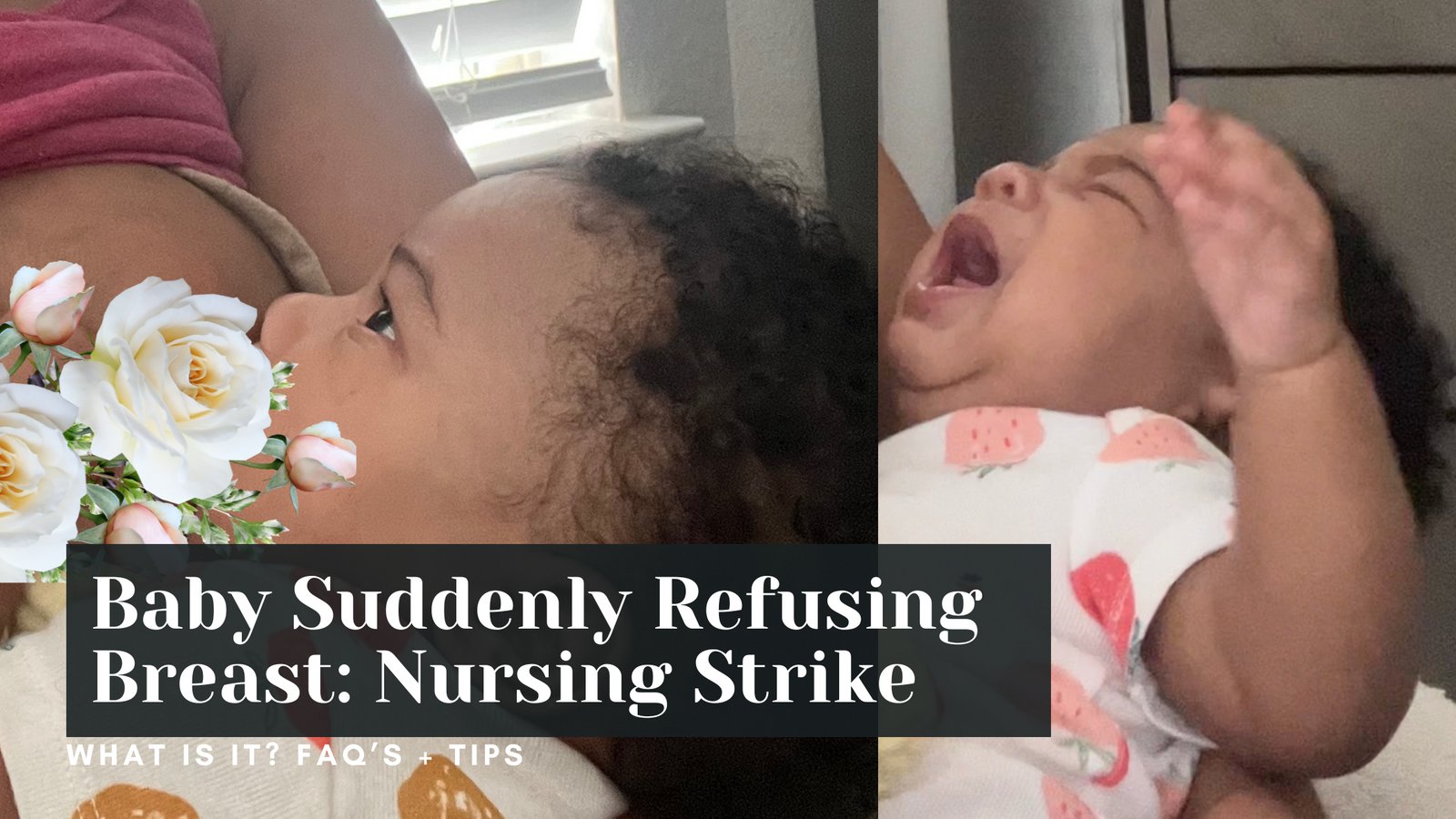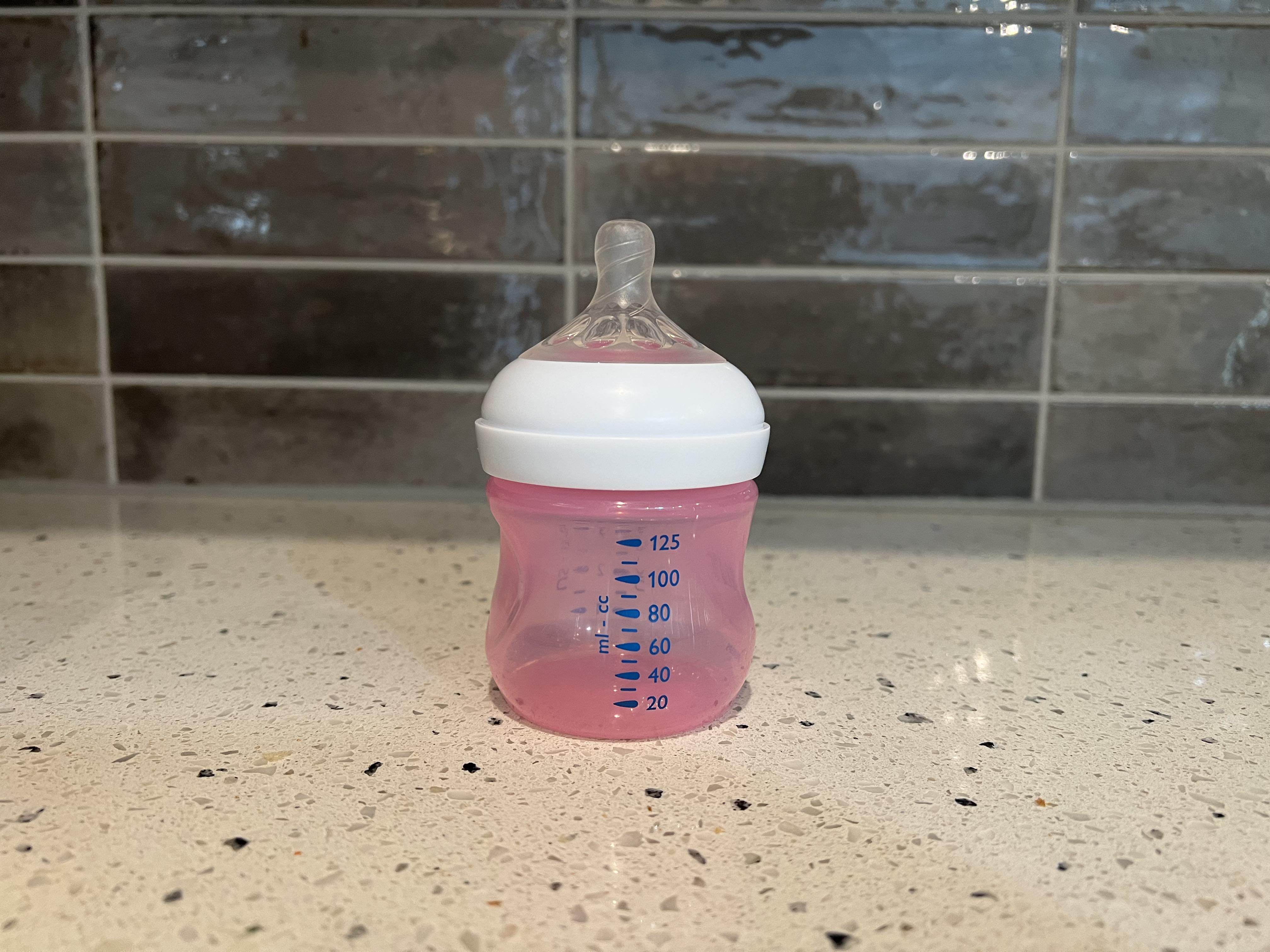Nursing Strike: Common Causes and How To Overcome It

In this Article:
- What Is A Nursing Strike And Why Is It Happening?
- What Can You Do To Overcome A Nursing Strike?
- Recommendations To Keep Your Milk Supply Up During The Strike?
What Is A Nursing Strike?
A baby or toddler who is breastfeeding and suddenly refuses to latch or nurse is referred to as a "nursing strike." This is different from a baby or toddler who is ready to gradually wean from breastfeeding. It is also different from a baby or toddler who is fussy or gassy.
This time can feel incredibly frustrating and confusing for mom and baby, but it's important to understand why this is happening.
Most Common Reasons Why Baby Is Refusing The Breast?
The good news is nursing strike isn't usually permanent and tends to only last 1-2 days or as many as 9 days.
With that said, here are some of the most common reasons why your baby could be refusing the breast:
- You've been under stress.
- There's been a change in your routine. Going out more than usual, having extra company, returning to work, being away from baby for extended periods of time, dealing with outside energies like family crisis's or work emergencies.
- You changed your deodorant, soap, perfume, lotion, etc. and you smell “different” to your baby.
- Your baby or toddler has sore gums.
- Your baby or toddler could be experiencing illness or injury. (Ear infections, thrush, stuffy nose, a cut on the mouth or burn can all make it uncomfortable to latch.)
- Teething.
- You recently changed your nursing patterns.
- They're getting more comfortable with bottle feeding.
- You reacted strongly when your baby bit you and the reaction of being frightened makes baby afraid to latch again.
- You may be newly pregnant (knowingly or unknowingly) and your milk supply may be reduced.
- You are ovulating and your milk supply may be temporarily reduced.
- You've been offering the breast less. The change in pumping schedule and offering breast less could be negatively impacting time with baby.
- Change in diet or medication. Some medications or foods can negatively impact your supply and baby could be refusing due to taste or overworking to feed.
- Overactive letdown. (OALD) This occurs when your milk comes in fast and sprays so forcibly that baby can't control it and instead refuses the breast.
If none of these things seem to align with recent activities that you can recall, baby may just need some adjustments and a little time to regain the desire to latch.
The great news is there's ways to strengthen baby's desire to begin breastfeeding again.
What Can You Do To Overcome A Nursing Strike?
There are several things you can do to help your baby overcome a nursing strike. Some top methods to regain baby's latch are:
- Stimulate your breast to encourage let down before offering breast to baby. This will promote immediate reward without extra work.
- Offer the breast on baby's first hunger cues instead of waiting until they're overtired or extra fussy.
- Give the baby extra attention.
- Increase skin to skin as much as possible.
- Try different nursing positions.
- When baby falls asleep, try to hold him or her a little longer for snuggles before lying them down in their crib or bassinet.
- Offer the breast first during each feeding.
- Latching during night hours as he/she is asleep, just awakening, or isn't very alert.
- Try nursing while in motion. (Football hold and walk, or use cloth carrier or baby sling for comfort and extra security.)
- Lay in bed topless and allow baby to search for breast. Being topless creates an open invitation to feed without pressure.
- Minimize all distractions (dim lights, quiet the environment, create comfortable space).
- Try nursing during different hours of the day. If you normally offer the breast at night, switch it up to open the invitation to nursing on demand.
Recommendations To Keep Your Milk Supply Up During The Strike?
During a nursing strike, always remember that a fed baby is best. Though it can be frustrating, continue to offer the breast to baby to re-establish closeness.
Until the reconnection is made, try these methods to protect your milk supply:
- Pump every 2-3 or 4 hours.
- Hand express while massaging the breast.
- Get rest as needed.
- Reduce stress levels surrounding this event.
- Increase your water intake to establish greater supply.
Not only does pumping protect your supply, but it also helps with avoiding clogged milk ducts or developing mastitis.
Though most nursing strikes present around 3-4 months of age, it can happen at any time.
It's important to continue to offer breast during the strike, but avoid forcing him or her to latch. Be gentle and stop if there is any refusal. Most babies overcome these phases quickly. Be sure to contact your pediatrician or lactation consultant if the situation isn't resolving or you suspect baby isn't getting proper nutrients.
Must Have Essentials For Your Breastfeeding Journey?
While you're navigating this moment in your breastfeeding journey, here are some of the top rated must haves that you'll want to have on hand to keep your journey going.
Muscle Up Mommy J35 wearable breast pump is necessary to pump anywhere, anytime. As baby is refusing to latch, it is critical to protect your milk supply.
As breastmilk supply is based on supply and demand, routine pumping that matches baby's feeding schedule will help to avoid any dips in your supply.
The all-in-one Maternity Nursing Bra supports breastfeeding and pumping. Giving you the power to get through feeding on demand and power pumping during those restrictive feeding times.
Quick release with the one-handed clip down function making baby happier, quicker.
Remember, a nursing strike while it can be frustrating, it does not mean this is the end of your journey. They are usually temporary. Stay encouraged.







Leave a comment